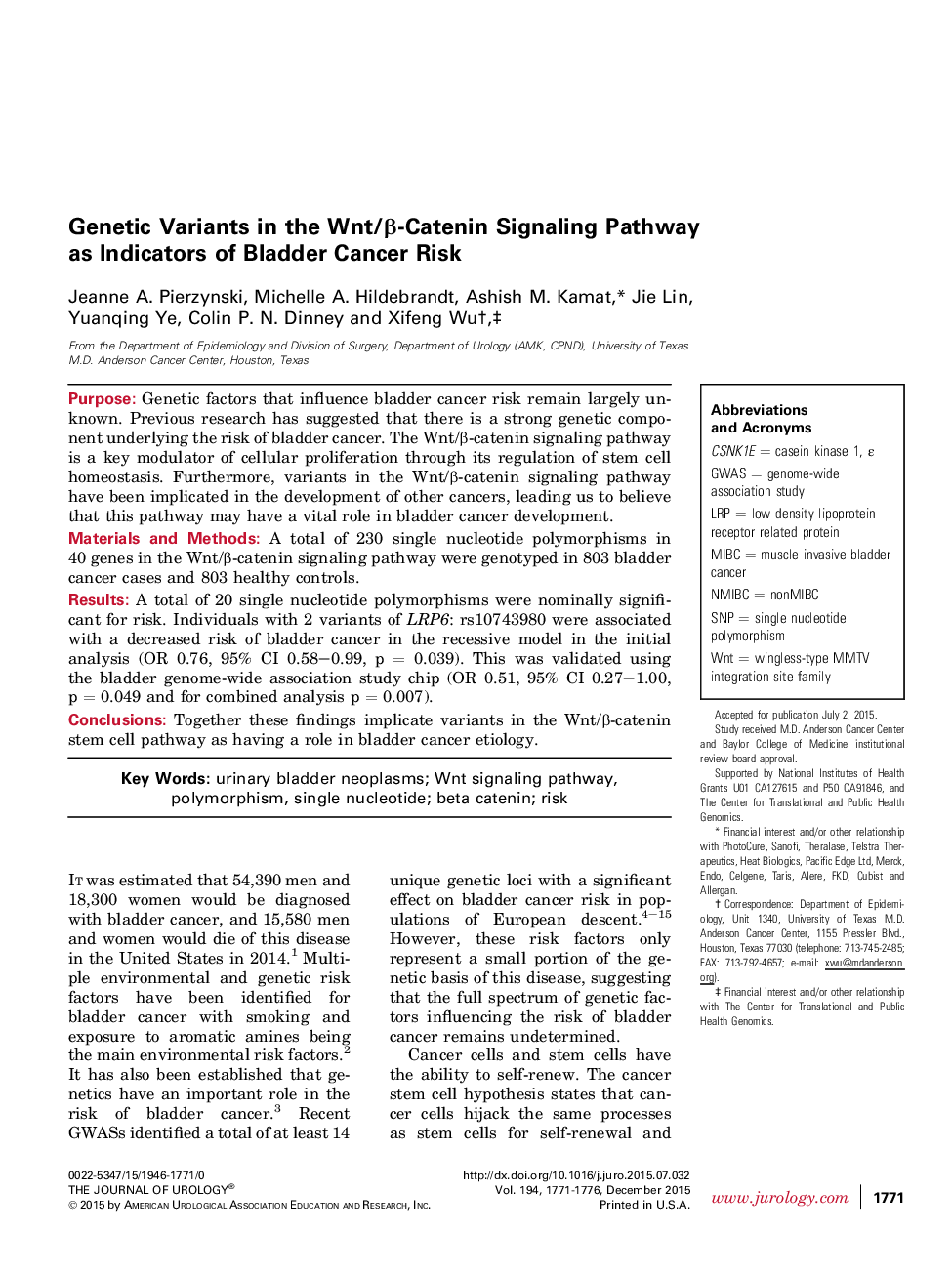| Article ID | Journal | Published Year | Pages | File Type |
|---|---|---|---|---|
| 3860470 | The Journal of Urology | 2015 | 6 Pages |
PurposeGenetic factors that influence bladder cancer risk remain largely unknown. Previous research has suggested that there is a strong genetic component underlying the risk of bladder cancer. The Wnt/β-catenin signaling pathway is a key modulator of cellular proliferation through its regulation of stem cell homeostasis. Furthermore, variants in the Wnt/β-catenin signaling pathway have been implicated in the development of other cancers, leading us to believe that this pathway may have a vital role in bladder cancer development.Materials and MethodsA total of 230 single nucleotide polymorphisms in 40 genes in the Wnt/β-catenin signaling pathway were genotyped in 803 bladder cancer cases and 803 healthy controls.ResultsA total of 20 single nucleotide polymorphisms were nominally significant for risk. Individuals with 2 variants of LRP6: rs10743980 were associated with a decreased risk of bladder cancer in the recessive model in the initial analysis (OR 0.76, 95% CI 0.58–0.99, p = 0.039). This was validated using the bladder genome-wide association study chip (OR 0.51, 95% CI 0.27–1.00, p = 0.049 and for combined analysis p = 0.007).ConclusionsTogether these findings implicate variants in the Wnt/β-catenin stem cell pathway as having a role in bladder cancer etiology.
